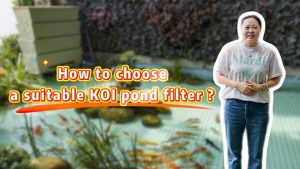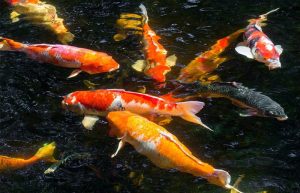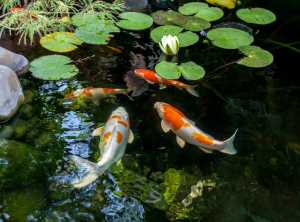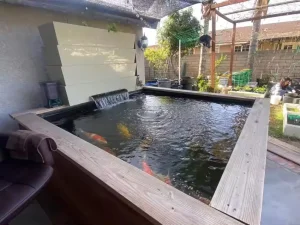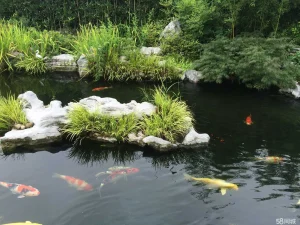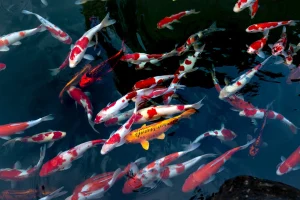The fish pond filtration system is crucial to keep the water quality clean and the health of the fish. The following is the introduction and selection of the fish pond filter system for your reference:
Introduction of the fish pond filtration system:
The main purpose of the fish pond filtration system is to remove impurities and harmful substances in the fish pond water, while providing appropriate biological filtration and oxygen enhancement, so as to maintain the stability and clarity of the fish pond water quality.
Common fish pond filtration systems include the following types
1.Overflow filtration system: through the water pump pumping and automatic flow of the water pool includes an internal circulation of the filtration system. The system usually includes physical filtration, biochemical filtration, and ultraviolet sterilization, which can effectively remove impurities and harmful substances in the fish pool.

2.Integrated fish pond filter: a variety of filtration methods are integrated in one device, including physical filtration, biochemical filtration, oxygen cycle and ultraviolet disinfection system. This filter covers a small space, with high filtration accuracy and convenient maintenance.

3.Bakki shower filtration system: through the water flow from top to bottom, through the multi-layer filter material for filtration. Such systems usually have better oxygen burst and biochemical effects, but may need to be used with other filtration systems.

4.Combi koi pond filter system: including physical filtration, biochemical filtration, aeration, sterilization and algae removal and other links, can realize automatic sewage and automatic back-washing.

Fish pond filter system selection
When selecting the fish pond filtration system, the following factors should be considered comprehensively:
1.Size of the fish pond: choose the appropriate filtration system according to the size of the fish pond. In general, large fish ponds require more powerful filtration systems to maintain water quality.
2.Filtering effect: different filtration systems have different filtration effects. For example, the integrated fish pond filter integrates a variety of filtration methods, high filtration accuracy, suitable for large fish pond use. The drip filtration system has better oxygen burst effect and biochemical effect, which is suitable for indoor small fish pool.
3.Maintenance cost: different filtration systems have different maintenance costs. For example, traditional filters are expensive to build and maintain, while an integrated fish pond filter is relatively simple and convenient.
4.Energy consumption: consider the energy consumption of the filtration system. Integrated fish pond filter integrates a variety of functions, relatively low energy consumption.
In conclusion, when selecting the fish pond filtration system, it is necessary to consider the size of the fish pond, filtration effect, maintenance cost and energy consumption, and choose the most suitable filtration system for your own fish pond.


